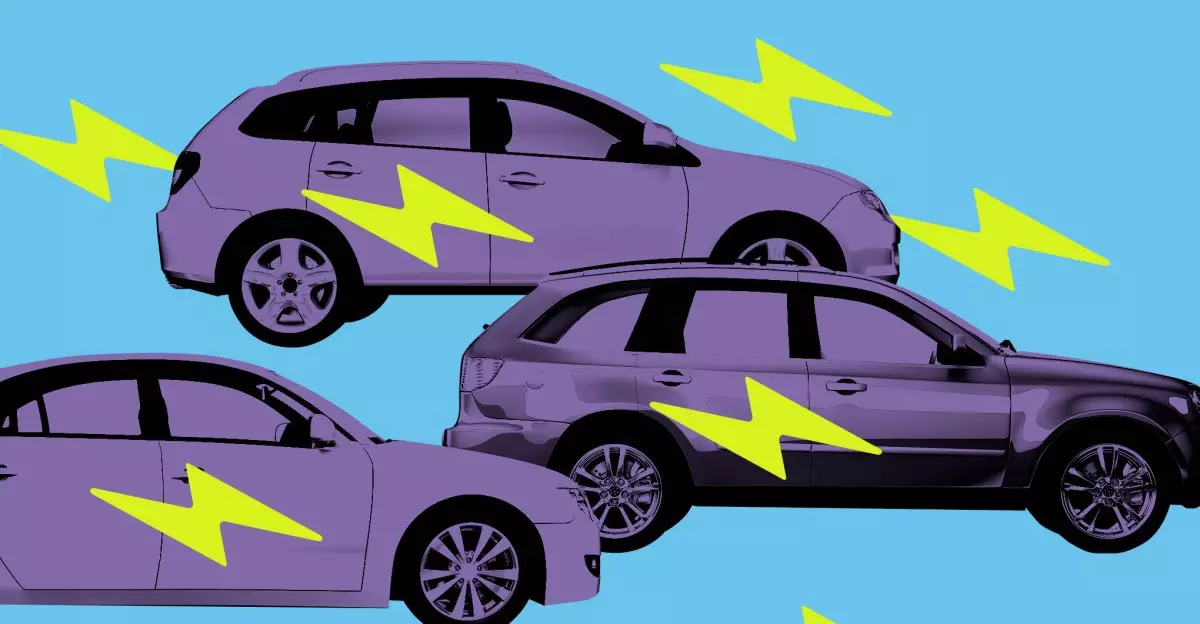Recent research underscores a significant advancement in road safety, demonstrating that real-time monitoring of driving habits can foster safer driving conditions. With road traffic injuries claiming over 40,000 lives in the U.S. alone in 2023, the stakes for improving driving behavior have never been higher. This innovative approach, heralded by a study from the AAA Foundation for Traffic Safety, introduces a potentially lifesaving intersection of technology and behavioral science in our transportation systems.
The Technological Revolution in Driving Habits
The integration of smartphone apps to monitor driver behavior is emerging as a pivotal tool for reducing accidents. Drawing inspiration from usage-based insurance (UBI) programs, which adjust premiums based on real-time data about driving habits, this research goes a step further. By leveraging feedback mechanisms delivered through text messages or digital dashboards, the foundation aims to instigate a shift in drivers’ behavior, even when the tracking is no longer operational.
The study invited 1,400 participants, organizing them into four distinct groups—three of which received feedback on their driving habits. This setup is a brilliant maneuver; it reflects how different styles of feedback can influence personal accountability. For example, the varying degrees of feedback—from weekly summaries to bespoke focus on selected behaviors—demonstrate that flexibility in monitoring can yield positive outcomes for diverse driver profiles.
The Results Speak Volumes
The findings of this study highlight a promising trajectory: participants in the monitored groups exhibited notable reductions in unsafe driving behaviors. An impressive 21% decreased instances of hard braking, while 25% curtailed rapid acceleration, all demonstrating that aware driving can flourish with minimal intervention. This resonates deeply with the psychological understanding that positive reinforcement can often yield more profound changes than punitive measures.
However, the research also prematurely encountered a challenge. Participants showed little change in their smartphone usage while driving—this indicates that moving beyond mere awareness and implementing deeper behavioral change is crucial. One can conclude that while monitoring can enhance certain behaviors, it does not automatically translate into comprehensive safety improvements.
The Psychological Dilemma of Being Monitored
Aversion to being watched is frequently cited by individuals when discussing any form of real-time tracking. Intrusive as it may seem, this aversion often masks a larger truth: many individuals possess an inflated perception of their driving skills. This phenomenon presents a substantial barrier to embracing innovative safety mechanisms. The realization that many drivers feel safer than they actually are must be confronted.
Interestingly, the psychological element of feedback—a component of the research focused on eliciting personal behavior changes—is crucial. Participants expressed that the potential for financial incentives and regular feedback would motivate them to adjust their behavior. This points to a valuable aspect of human psychology; people respond positively to motivation anchored in tangible rewards.
Driving Towards the Future of Road Safety
As more drivers recognize the value of technology in transforming everyday experiences, innovative applications such as driving behavior trackers are gaining traction. The number of auto insurance shoppers engaged with UBI programs has grown remarkably, reflecting a slight shift in public perception regarding surveillance on the road. Despite initial resistance, the ongoing evolution of these programs suggests a promising horizon for their adaptation.
While motorists already rely on various apps to monitor health metrics like physical activity and dietary habits, it beckons the question: Why not extend this mindfulness to driving? The smartphone—an indispensable tool in daily life—may ultimately serve as the bridge between unhealthy driving habits and safer roads.
Shaping a New Driving Culture
It is evident that the potential for positive driving habits exists, even in a realm often plagued by recklessness. AAA’s research presents an opportunity for bold, creative strategies to further educate drivers about making safer choices. Instead of framing safety as a restrictive condition, reimagining it as a journey empowered by personalized feedback can spark a cultural shift in driving habits.
As society grapples with the emotions surrounding monitoring technologies, there emerges a unique potential to cultivate a safer driving environment—one where roads have fewer fatalities and drivers are not only more aware but are also empowered to improve. With further innovation and relentless encouragement, we can potentially embark on a new age of traffic safety that transcends conventional motoring practices.

